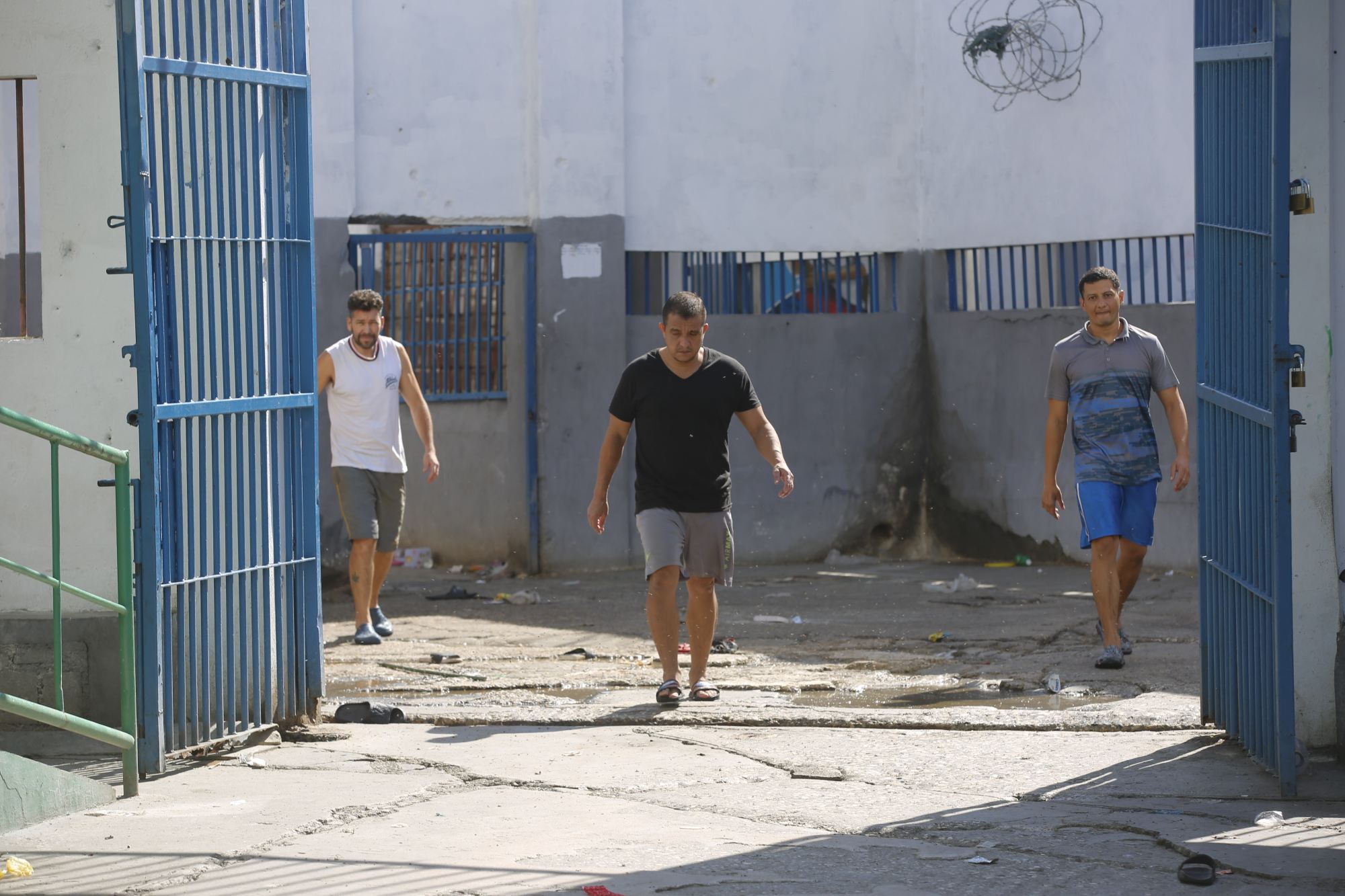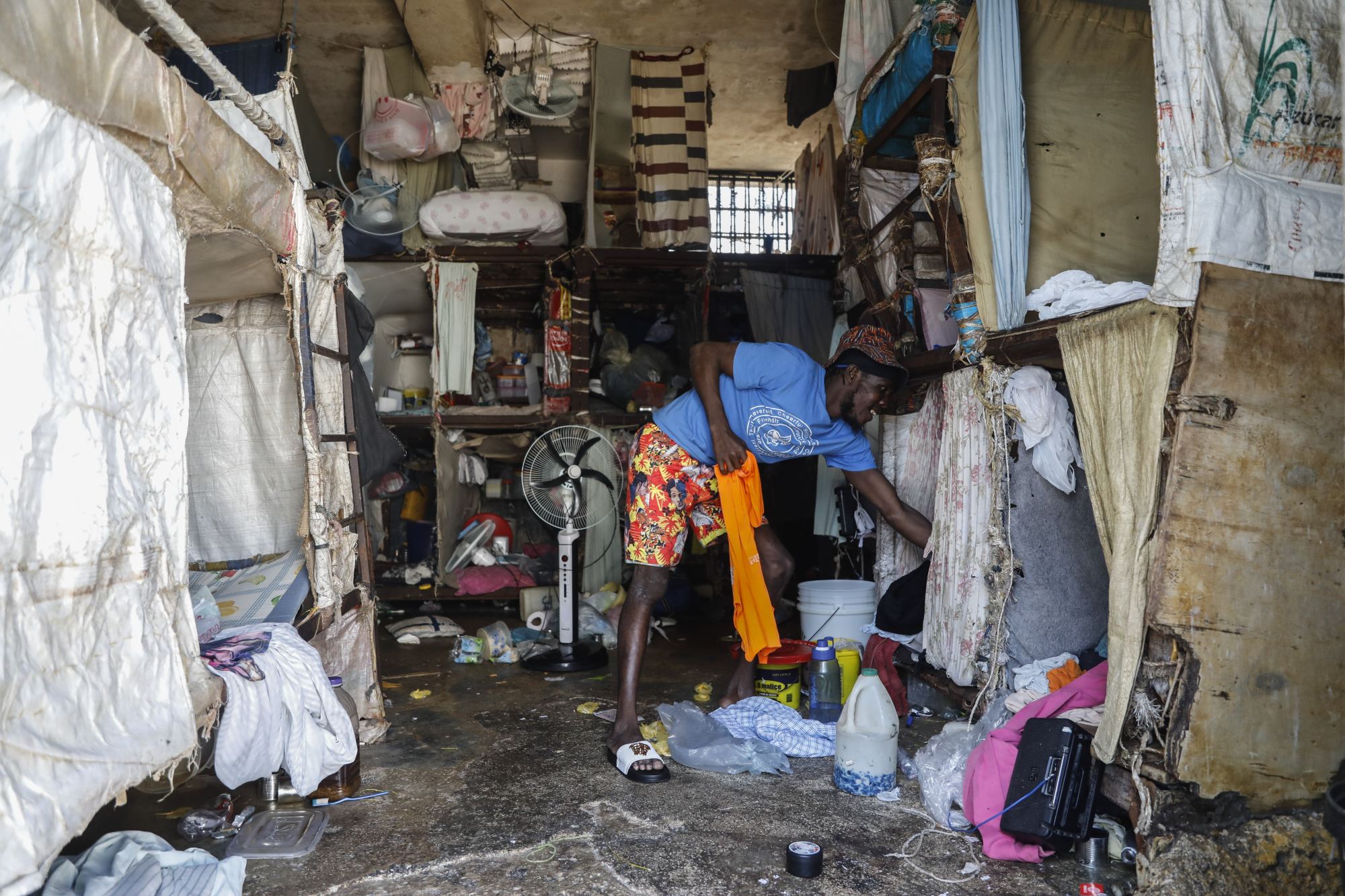In another neighbourhood, the bloodied bodies of two men with their hands tied behind their backs lay face down as residents walked past roadblocks set up with burning tyres.

Authorities had yet to provide an account of what happened. But Arnel Remy, a human rights lawyer whose non-profit organisation works at the prison, said on X, formerly Twitter, that fewer than 100 of the nearly 4,000 inmates remained behind bars.
Those choosing to stay included 18 former Colombian soldiers accused of working as mercenaries in the July 2021 assassination of Haitian President Jovenel Moise. On Saturday night, several of the Colombians shared a video pleading for their lives.
“Please, please help us,” one of the men, Francisco Uribe, said in the message widely shared on social media. “They are massacring people indiscriminately inside the cells.”
On Sunday, Uribe told Associated Press “I didn’t flee because I’m innocent.”
In the absence of official information, inmates’ family members rushed to the prison to check on loved ones.
“I don’t know whether my son is alive or not,” said Alexandre Jean as she roamed around the cells looking for any sign of him. “I don’t know what to do.”
Gunfire paralyses Haiti as gang boss seeks to capture police chief, ministers
Gunfire paralyses Haiti as gang boss seeks to capture police chief, ministers
The violence on Saturday night appeared to be widespread, with several neighbourhoods reporting gunfire.
There were reports of a jailbreak at a second Port-au-Prince prison containing around 1,400 inmates. Armed gangs also occupied and vandalised the nation’s top football stadium, taking one employee hostage for hours, the nation’s football federation said in a statement.
Internet service for many residents was down as Haiti’s top mobile network said a fibre optic cable connection was slashed during the rampage.
In the space of less than two weeks, several state institutions have been attacked by the gangs, who are increasingly coordinating their actions and choosing once unthinkable targets such as the Central Bank.
After gangs opened fire at Haiti’s international airport last week, the US embassy said it was temporarily halting all official travel to the country. As part of coordinated attacks by gangs, four police officers were killed on Thursday.

The epicentre of the latest violence on Saturday night was Haiti’s National Penitentiary, which is holding several gang leaders. Amid the exchange of gunfire, police appealed for help.
“They need help,” a union representing police said in a message on social media bearing an “SOS” emoji repeated eight times. “Let’s mobilise the army and the police to prevent the bandits from breaking into the prison.”
The clashes follow violent protests that turned deadlier in recent days as the prime minister went to Kenya to try to salvage a proposed United Nations-backed security mission in Haiti to be led by the East African country.
Henry took over as prime minister following Moise’s assassination and has repeatedly postponed plans to hold parliamentary and presidential elections, which have not happened in almost a decade.
Haiti judge charges widow, ex-PM over president’s 2021 assassination
Haiti judge charges widow, ex-PM over president’s 2021 assassination
Haiti’s National Police has roughly 9,000 officers to provide security for more than 11 million people, according to the UN. They are routinely overwhelmed and outgunned by gangs, which are estimated to control up to 80 per cent of Port-au-Prince.
Jimmy Cherizier, a former elite police officer known as Barbecue who now runs a gang federation, has claimed responsibility for the surge in attacks. He said the goal was to capture Haiti’s police chief and government ministers and prevent Henry’s return.
The prime minister, a neurosurgeon, has shrugged off calls for his resignation and did not comment when asked if he felt it was safe to return home.

